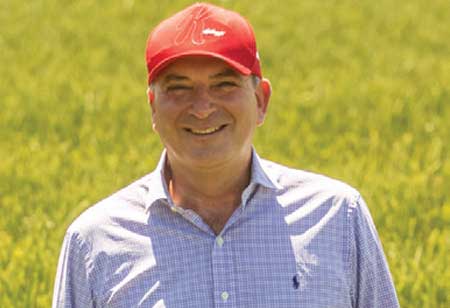

Thank you for Subscribing to Agri Business Review Weekly Brief

With the spotlight firmly on the growing impact of climate change, Australian farmers are facing increasing pressure to shift towards, and implement, sustainable practices. With benefits not only to the environment, sustainable farming practices will also help to protect the livelihoods of local farmers who have suffered from the impacts of extreme weather patterns in recent years.
Many farming communities come from a long lineage of farmers before them, meaning there is also history to protect. Now is the time to have the important conversations about how we can adapt to changing climates and ‘future proof’ our most vital industry.
Looking at opportunities to increase sustainable practices across the end-to-end supply chain, ‘soil to spoon’ partnerships are becoming increasingly important in both supporting farmers livelihoods and achieving sustainability goals.
Initiatives such as the industry-wide Cool Soil Initiative, of which Kellogg was an early corporate member, create opportunities for businesses to work alongside farming communities to implement various sustainable management practices that help build resilient supply chains, while also mitigating GHG emissions.
Working with almost 200 farmers across the country, so far, it brings together key players in the wheat and corn supply chain to support and enable farmers to investigate innovative cropping practices to improve the health of the soil and reduce on-farm greenhouse gas emissions.
Insights from the Cool Soil initiative show that such changes to growing practices are leading to more consistent and sustainable productivity, improved soil fertility, and an increase in water retention.
One of the key elements of the Cool Soil Initiative is focused on increasing the amount of carbon in the soil. Carbon is usually talked about as a negative. However, increasing the amount of organic carbon in the soil, through the changes to farming practices, helps to improve soil health, therefore creating an opportunity for Australian farmers to produce healthier, more resilient crops.
Soil carbon provides a source of nutrients to crops via mineralisation processes that help to reduce physical degradation, increase water storage and microbial activity, and protect from soil erosion. As one of the main elements present within soil, it is a vital component of productive agriculture.
In addition to helping farmers produce better quality and more reliable crops, carbon sequestration has been recognised as a key tool in mitigating against climate change. The soil acts as a ‘carbon sink’, helping to absorb carbon dioxide from the atmosphere. This helps to further reduce carbon emissions within the end-to-end food supply chain and offers positive impacts for the farmers themselves.
Insights from the Cool Soil initiative show that such changes to growing practices are leading to more consistent and sustainable productivity, improved soil fertility and an increase in water retention.
Beyond soil, the Cool Soil Initiative has created better connections across the supply chain. This includes the farmers that produce the crops, the distributors that deliver them to the factories, and the brands that turn the wheat and corn into the products that we all know and love.
Initiatives such as Cool Soil have enabled key players within the food industry, such as Kellogg, to have a real impact on the ground.
Working with Australian farmers for more than 90 years, Kellogg has committed to long-term investment into strengthening the farming system, helping farmers to identify sustainable practices with tangible and meaningful benefit for their long-term viability. While also reducing the environmental impact of the end-to-end supply chain, industry wide collaboration, such as this, is essential in ensuring the future of the Australian farming industry and nurturing the plant. This helps to brings businesses and industry, collectively, one step closer to the overarching sustainability goal of conserving natural resources all along from value chain.
